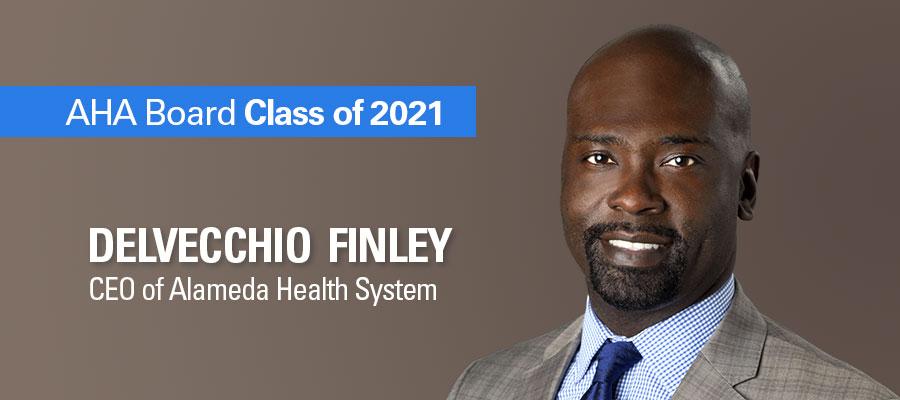Alameda Health System CEO Finley strives to improve population health, affordability and access

As a chemistry student at Emory University, AHA board member Delvecchio Finley worked part time at Piedmont Hospital in Atlanta in a range of areas — from parking deck security to medical records to admitting patients to the emergency department as a registrar to having a clinical role in a cardiovascular intensive care unit.
“I got to see a lot of different perspectives in health care delivery and administration, as well as the operations of a complex facility providing services to patients,” Finley said. “It was a really great experience, and it reinforced that I wanted to be in health care.”
Today, he leads Alameda (Calif.) Health System as it works to improve population health and expand services into the community to address the crucial importance of prevention and upstream interventions. He also joined the AHA Board of Trustees this year.
“The AHA is devoted to advancing health in our communities, and not just health care,” Finley said. “That really resonates with me — that we’re not seeking to simply advocate for the sustainability of health care enterprises in and of themselves, but we’re doing it as a conduit for making sure we are there to support the establishment and maintenance of health in our community.”
To better coordinate care and ensure more seamless experiences for patients, Finley said Alameda is implementing a system-wide electronic health record system, modernizing its records system to better integrate and coordinate care, partnering with community stakeholders to address the community’s health care needs, and aligning physicians “in ways that allow us to be more systematic in our approach to the care that we offer.”
As hospitals and health systems strive to transform health care delivery to meet the changing needs of patients, many struggle to keep their doors open to the community and help patients afford the cost of care, Finley said.
During his three-year term on the AHA board, he hopes to make health care affordability and accessibility his priorities, as well as working with communities to eliminate health care disparities by addressing the social determinants of health. He also appreciates the opportunity to learn from other board members.
“To be able to have that information exchange and knowledge transfer with other board members, and then bring it back to your own community and really accelerate your efforts, that’s been wonderful,” Finley said.

